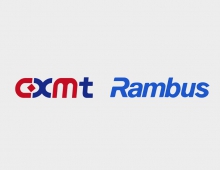
European Commission Accepts Rambus Commitments in Final Settlement
Technology licensing company Rambus today announced that the European Commission has accepted commitments proposed by Rambus to resolve the matter that had been pending with the Commission.
This decision by the Commission brings the matter to a close. As part of the settlement, the Commission makes no finding of liability, and no fine will be assessed against Rambus. Rambus, for its part, commits to offer licenses with maximum royalty rates for certain memory types and memory controllers on a forward-going basis.
"We are pleased to have this matter closed with the Commission. Following a long and detailed examination of the facts, the Commission did not find that Rambus violated the law, nor did it impose any fine," said Thomas Lavelle, senior vice president and general counsel at Rambus. "For our part, we agree to offer licenses at attractive rates for customers to use our patented innovations in computing and electronics products for consumers worldwide."
Rambus offers licenses with maximum royalty rates for five-year worldwide licenses of 1.5% for DDR2, DDR3, GDDR3 and GDDR4 SDRAM memory types. Qualified Licensees will enjoy a royalty holiday for SDR and DDR DRAM devices, subject to compliance with the terms of the license. In addition, Rambus offers licenses with maximum royalty rates for five-year worldwide licenses of 1.5% per unit for SDR memory controllers through April 2010, dropping to 1.0% thereafter, and royalty rates of 2.65% per unit for DDR, DDR2, DDR3, GDDR3 and GDDR4 memory controllers through April 2010, then dropping to 2.0%. Rambus will offer these licensing rates for the next five years. The royalty rates are applicable to future shipments only, and do not resolve any existing claims in other cases.
The European Commission originally brought charges against Rambus in August 2007 alleging violation of European Union competition law. The Commissions investigation followed complaints set forth by certain DRAM manufacturers originating with Rambus' 1992-1995 participation in an industry standard-setting organization, the Joint Electron Device Engineering Council ("JEDEC"). Similar charges had been pursued by the Federal Trade Commission (FTC) in the United States. The FTC has closed its investigation following a series of U.S. Court rulings underlining that the allegations of Rambus wrongdoing were ill-founded. On June 12, 2009, the European Commission announced its intention to accept Rambus proposed commitments, subject to market testing as prescribed by EU law. Following the market testing, certain terms of the Commitment were amended by Rambus resulting in this matter coming to a close.
"We are pleased to have this matter closed with the Commission. Following a long and detailed examination of the facts, the Commission did not find that Rambus violated the law, nor did it impose any fine," said Thomas Lavelle, senior vice president and general counsel at Rambus. "For our part, we agree to offer licenses at attractive rates for customers to use our patented innovations in computing and electronics products for consumers worldwide."
Rambus offers licenses with maximum royalty rates for five-year worldwide licenses of 1.5% for DDR2, DDR3, GDDR3 and GDDR4 SDRAM memory types. Qualified Licensees will enjoy a royalty holiday for SDR and DDR DRAM devices, subject to compliance with the terms of the license. In addition, Rambus offers licenses with maximum royalty rates for five-year worldwide licenses of 1.5% per unit for SDR memory controllers through April 2010, dropping to 1.0% thereafter, and royalty rates of 2.65% per unit for DDR, DDR2, DDR3, GDDR3 and GDDR4 memory controllers through April 2010, then dropping to 2.0%. Rambus will offer these licensing rates for the next five years. The royalty rates are applicable to future shipments only, and do not resolve any existing claims in other cases.
The European Commission originally brought charges against Rambus in August 2007 alleging violation of European Union competition law. The Commissions investigation followed complaints set forth by certain DRAM manufacturers originating with Rambus' 1992-1995 participation in an industry standard-setting organization, the Joint Electron Device Engineering Council ("JEDEC"). Similar charges had been pursued by the Federal Trade Commission (FTC) in the United States. The FTC has closed its investigation following a series of U.S. Court rulings underlining that the allegations of Rambus wrongdoing were ill-founded. On June 12, 2009, the European Commission announced its intention to accept Rambus proposed commitments, subject to market testing as prescribed by EU law. Following the market testing, certain terms of the Commitment were amended by Rambus resulting in this matter coming to a close.




















